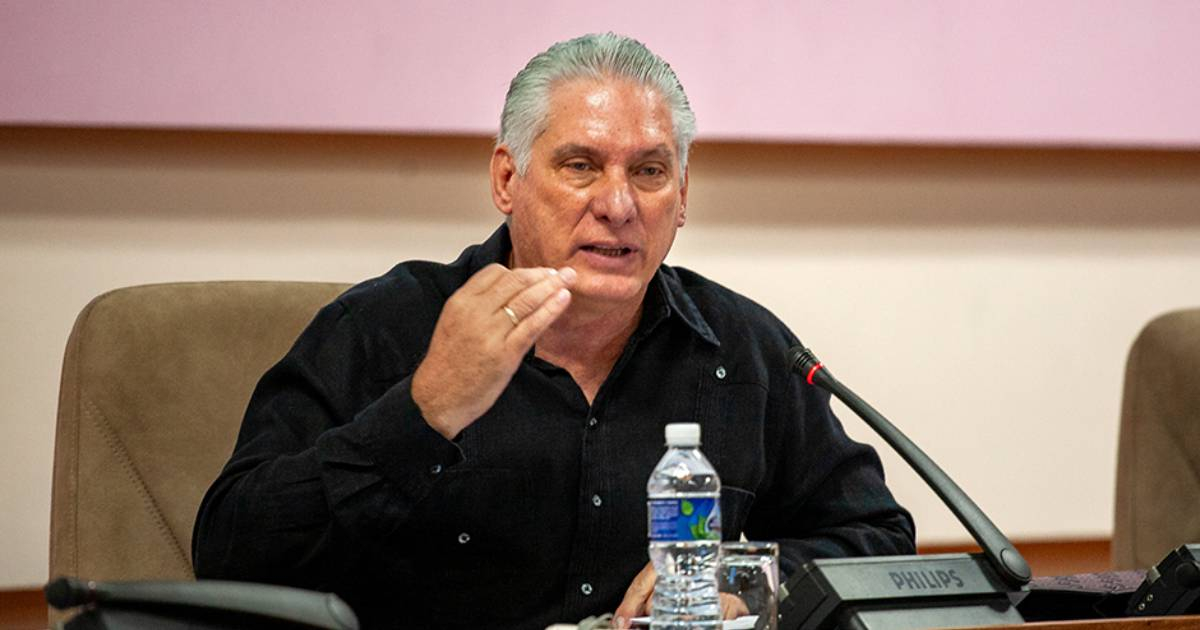
The Cuban ruler Miguel Díaz-Canel announced a "reordering"for the private and state sectors, due to the 'irresponsible manner' in which some of these institutions are being managed," he pointed out.
Díaz-Canel insisted that it is not about a witch hunt against a specific form of management or ownership; but the official discourse has been attacking Small and Medium Enterprises (SMEs) for some months now, especially those that import finished products or do not comply with price caps.
"What we are proposing here is an organization so that there can be the greatest amount of offers of goods and services at appropriate prices for the population, and for everyone to contribute everything they need to contribute," he stated.
During his report to the Economic Commission of the National Assembly of People's Power on the progress of the bank integration process, the President recalled that the Cuban economic model has the socialist state enterprise as its fundamental economic actor, as reported by Cubadebate.
However, he emphasized that both the state sector and the non-state sector have responsibilities: "Both have to work within the law and contribute with taxes or fees. Where there has been a deviation in a non-state management form, there is always a state entity behind it that is related to it," he said.
The president added that a priority of the government is macroeconomic stabilization, a program that includes several processes. Work is also being done on improving the management system of the economy and the allocation of foreign currency, considering the process of decentralization of powers.
Díaz-Canel reiterated the existence of deviations and distortions within the economy that must be eradicated.
"There is a budget deficit, high tax evasion, and a distortion in prices," he said.
Furthermore, he pointed out issues such as speculation, inflation, corruption, informal work with a high tendency for tax evasion, the disconnection between education and work, and the vulnerable situation of families, within a context of state inefficiency that has led to an increase in extreme poverty.
The Council of Ministers approved six draft laws this week, which will be presented to the Council of State, updating the legal provisions for SMEs, self-employed workers, and private sector companies in Cuba, emphasizing that it is not a witch hunt.
"It must be made clear the role that corresponds to each actor in the country's economy, and the Constitution of the Republic makes it clear that the main actor is the socialist state enterprise," emphasized Prime Minister Manuel Marrero.
The Council of Ministers approved two more decrees, one of them modifies Decree 49 and specifies the activities that Mipymes are not authorized to carry out. The second decree is for the creation of a new agency of the Central State Administration: the National Institute of Non-State Actors.
Since last week, the government began to fine small and medium-sized businesses for alleged violations of price controls on six essential goods.
The Minister of Finance and Prices in Cuba, Vladimir Regueiro Ale, warned owners of SMEs that, for example, it is a "serious offense" to hide merchandise and not sell it to the population.
What is your opinion?
COMMENTFiled under: